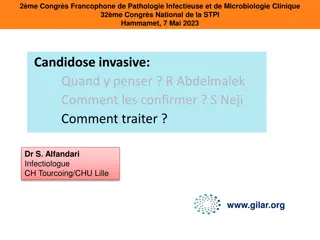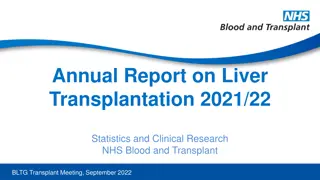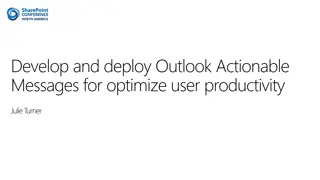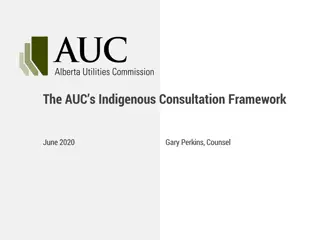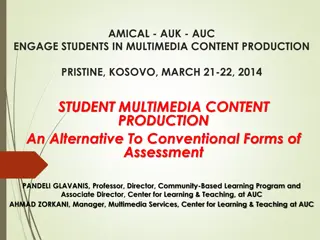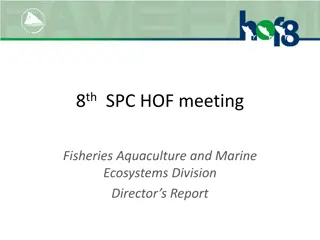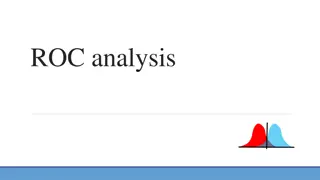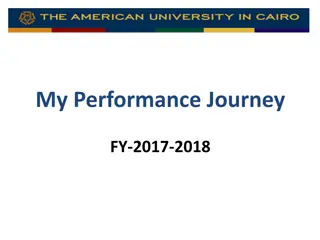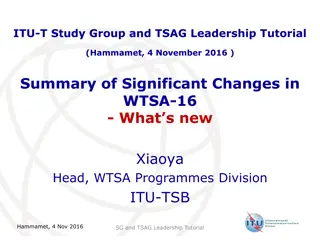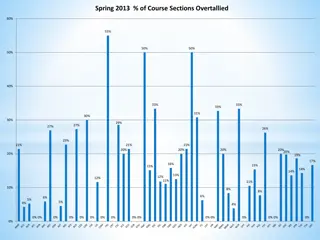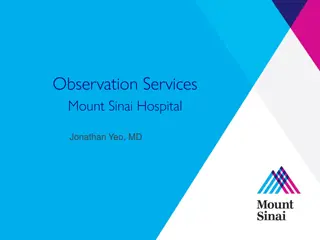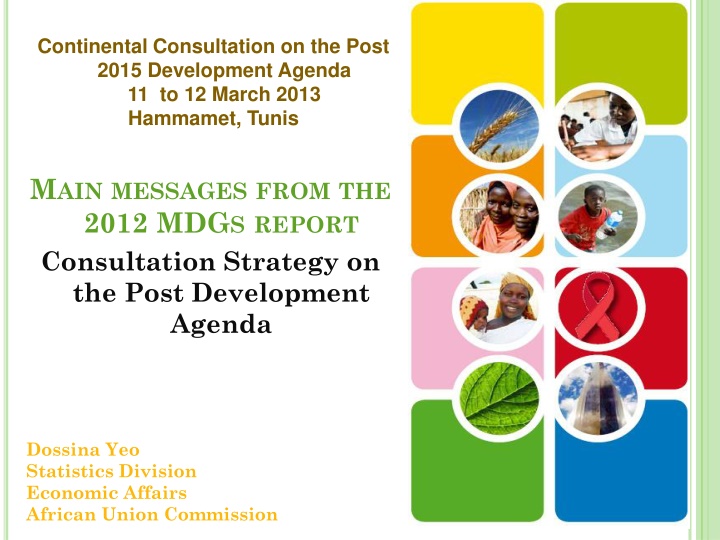
Insights from 2012 MDGs Report on Post-2015 Development Agenda in Africa
The presentation highlights Africa's progress and challenges in achieving the Millennium Development Goals (MDGs) in areas such as poverty reduction, education, gender equality, and healthcare. Significant improvements have been made in some goals, while others are off track. The continent faces disparities in access to social services and gender empowerment. The report emphasizes the need for continued efforts and targeted strategies for the post-2015 development agenda.
Download Presentation

Please find below an Image/Link to download the presentation.
The content on the website is provided AS IS for your information and personal use only. It may not be sold, licensed, or shared on other websites without obtaining consent from the author. If you encounter any issues during the download, it is possible that the publisher has removed the file from their server.
You are allowed to download the files provided on this website for personal or commercial use, subject to the condition that they are used lawfully. All files are the property of their respective owners.
The content on the website is provided AS IS for your information and personal use only. It may not be sold, licensed, or shared on other websites without obtaining consent from the author.
E N D
Presentation Transcript
Continental Consultation on the Post 2015 Development Agenda 11 to 12 March 2013 Hammamet, Tunis MAIN MESSAGES FROM THE 2012 MDGS REPORT Consultation Strategy on the Post Development Agenda Dossina Yeo Statistics Division Economic Affairs African Union Commission
OUTLINEOFTHEPRESENTATION Overview Areas of progress Areas of concern Post 2015 development agenda
OVERVIEW The continent continues to make steady progress on most of the goals; Africa s performance on the MDGs varies across and within countries; Africa s aggregate performance on the MDGs masks wide income, inequalities in accessing social services. gender and spatial
AFRICAS MDG PERFORMANCEATAGLANCE, 2012 Goals and Targets Status Remarks (from the Millennium Declaration) $1.25-a-day poverty in Africa (excluding ) declined from 56.5% to 47.5% during 1990 2008 Progress on food security is slow. Hunger reduced by 18% during 1990 2011 in Africa (excluding North Africa) and 39% in North Africa Goal 1: Eradicate extreme poverty and hunger Off track Average enrolment exceeds 80% Issues of quality remain Most countries are not expected to meet the completion target Goal 2: Achieve universal primary education On track: net enrolment Good progress at primary level but weak parity at secondary and tertiary levels of education High representation in parliament Goal 3: Promote gender equality and empower women On track Declining, but slowly Goal 4: Reduce child mortality Off track Declining, but slowly Goal 5: Improve maternal health Off track HIV/AIDS on the decline, especially in , due to behavioural change and access to antiretroviral therapy Goal 6: Combat HIV/AIDS, malaria and other diseases Off track Few countries have reforestation plans Emissions minimal for most countries with little increase Most countries reduced consumption of ozone- depleting substances by more than 50% Goal 7: Ensure environmental sustainability On track: improved water supply
AREASOFPROGRESS Goal 1: Both the poverty rate and the number of poor people declined for the first time since poverty monitoring began; Goal 2: Tremendous gains in Net primary enrolment in most African countries and the continent is likely to meet net primary enrollment targets; Goal 3: Significant strides in promoting gender parity in primary education and women's representation in national parliament; Goal 4: Immunization coverage has expanded in most countries; Goal 6: Sustained progress in the fight against HIV &AIDS,TB and Malaria; Goal 8: A considerable number of African countries have reached post-HIPC completion point.
AREASOFCONCERN Goal 1: The pace of poverty reduction is too slow to meet the goals by the target date ; Goal 1: Unemployment, particularly among the youth, low productivity and poor working conditions persist despite rapid growth; Goal 2: Notwithstanding significant progress in primary enrollment, completion rates and quality of education remain low; Goals 4 and 5: Performance in reducing infant, under-five and maternal mortality is still slow and not sufficient to achieve the goals by the target date.
AREASOFCONCERN (CTD) Goal 6: Funding cuts threaten gains made in fighting HIV and AIDS, Malaria and TB; Goal 7: Poor sanitation, limited access to improved drinking water sources, declining forest cover and climate change are among the most pressing environmental challenges facing the continent; Goal 8: Donors face sharp increases in budget challenges of their own, commitments more challenging. making their aid
AREASOFCONCERN (CTD) Inequality and quality of service delivery also remains a concern ; Monitoring and evaluation of MDGs indicators is problematic due to weak capacity of statistical system in the continent ; In general with the current trend Africa will not achieve the MDGs by the target date ;
POST-2015 DEVELOPMENTAGENDA Africa s must play an active and strategic role in shaping the post 2015 development agenda; The continent needs to assess success and failures by policy makers and development partners to develop an inclusive and sustainable post-2015 development agenda; Current development debate is as follows: MDGs as they are but extending the target date MDG plus introducing new challenges New development framework
POST-2015 DEVELOPMENTAGENDA (CTD) The 19th Ordinary Session of the Assembly of Heads of State and Government(Decision Assembly/AU/DEC.423 (XIX)) of the African Union in July 2012 requested the Commission, in close consultation with Member States and Regional Economic Communities, to identify Africa s priorities for the post-2015 development agenda with the support of the AfDB, UNDP, UNECA and all other stake holders ; Following the decision of the Assembly, the Commission in collaboration with UNECA, AfDB and UNDP has designed consultation strategies on the post 2015 development agenda;
POST-2015 DEVELOPMENTAGENDA (CTD) The strategy was to organize two regional and one continental consultations development agenda involving all stake holders; on the post 2015 The Commission used the opportunity of other forums such as private sector forum, the statistics meeting, RCM and other foras to discuss the post 2015 development agenda; The main objective of the consultations is to identify African priorities for the post 2015 development agenda and to ensure that the post 2015 development agenda debate is credibly informed by Africa s perspectives and priorities ;
POST-2015 DEVELOPMENTAGENDA (CTD) Statisticians need to be involved and should play a major role in the formulation of the post 2015 development agenda to define measurable and realistic indicators taking into consideration African specificity ; The outcome of the consultations will culminate in an African Common Position to be adopted at the 21st Ordinary Session of the Assembly of Heads of State and Government of the African Union in July 2013 ; The African Union will be presenting the Common position to the 68th United Nations General Assembly
THANKYOU Dossina YEO Statistics Division E-mail: DossinaY@africa-union.org www.au.int

